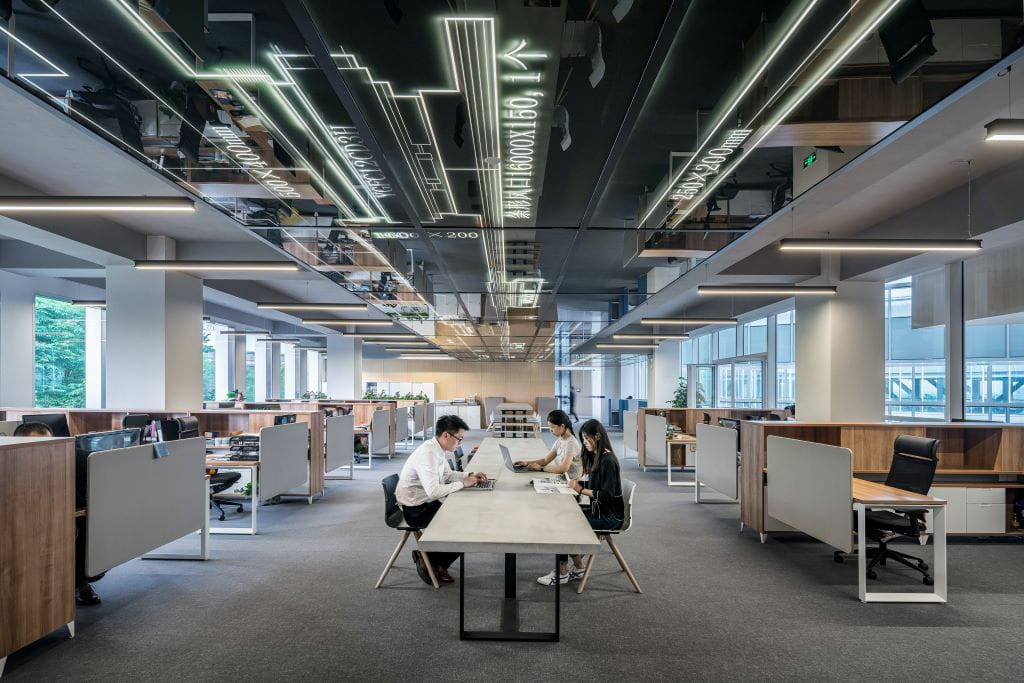#1. If you thought work from home was messy…Think again.
It took months for managers and employees alike to fully adjust to remote work once the COVID-19 pandemic hit. But the future of work may be much, much messier, according to the Wall Street Journal. Companies across the globe have been mulling options for a new hybrid work future in a post-pandemic environment, but it’s not as straightforward as it seems.
JP Morgan Chase & Co, for example, allows employees to schedule work-from-home days – with the exception of Mondays and Fridays --, while Salesforce.com Inc. was forced to rethink the design of its office space to prevent overcrowding of meeting rooms and open spaces. There’s also another issue: making sure remote workers don’t miss out on promotions and pay raises. For many managers, the main concern isn’t COVID-19 anymore: it’s a potential brain drain from their ranks as employees are looking to maintain a degree of flexibility in terms of how and where they work. Read more here.

#2. Why it’s hard to hire in the U.S. right now.
Businesses in the U.S. are all faced with a baffling problem: they are struggling to hire new talent, despite high unemployment rates. Some government officials have blamed this phenomenon on continuing unemployment benefits. However, The New York Times writes that it’s more likely related to a health shortage, a wage shortage and a care shortage. To attract workers, companies should improve wages and benefits among other factors, take the necessary health precautions to reassure their employees and advertise jobs in a transparent manner. Read more here.

#3. Deutsche Bank gave interns a choice between virtual and on-site work. The verdict was clear.
As summer internships begin once again, companies have an important decision to make: do interns come into the office, or work from home? According to Deutsche Bank, interns overwhelmingly want to come into the office. Some 92% of U.S.-based investment banking interns opted to show up in person. Likewise, US giants Goldman Sachs and JPMorgan are doing in-person internships.
"DB is committed to providing the same outstanding quality of learning experience for every intern either remotely or in the office," Business Insider quoted a spokesperson as saying. "We are making sure the program offers interns the opportunity to network equally with their peers and our current employees at all levels whether in person or virtually so this experience and learning works.” Read more here.

#4. How office providers had to reinvent themselves.
Office closures has affected more than just the workers that used to frequent them. Across the world, office suppliers providing everything from printers to paperclips have suffered the direct consequences of the virtual world. What happens to these office-centric businesses when the pandemic ends, and offices downsize? Some industries, such as cleaning companies, have found that they are now more important than ever, even if the scope of their work has narrowed. Other companies, like workplace supply businesses, have pivoted to providing table screens, thermometers, and hand sanitizers. Read more here.

#5. We need to re-imagine a new, family-friendly workplace.
Recruiting the best talent on the market isn’t always about fancy meeting rooms, free coffee, and a complementary gym downstairs. One of the most valuable benefits companies can provide today, an entrepreneur argues, is childcare and a more family-friendly workplace. When childcare is offered as a benefit, parents feel supported and encouraged to work. It also alleviates financial and emotional burden, allowing companies to attract and retain the best talent. It’s not just about retention, though – these benefits can also help boost productivity. Read more here.




